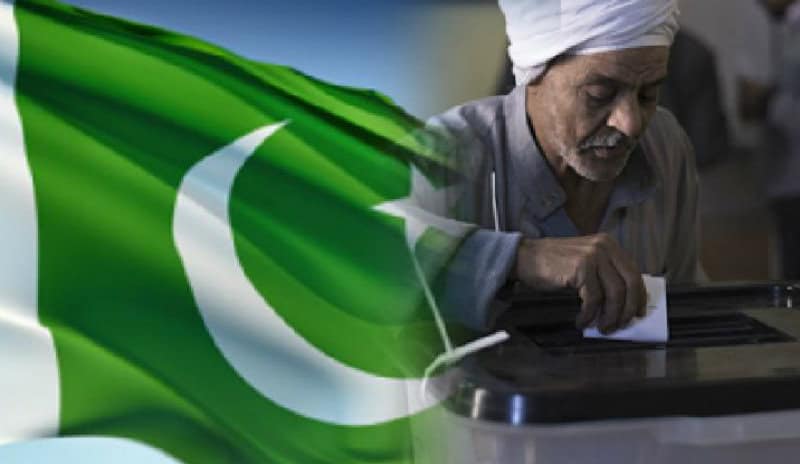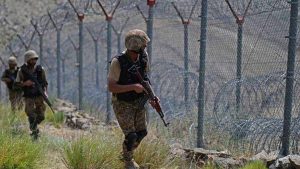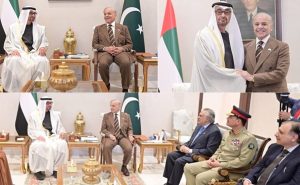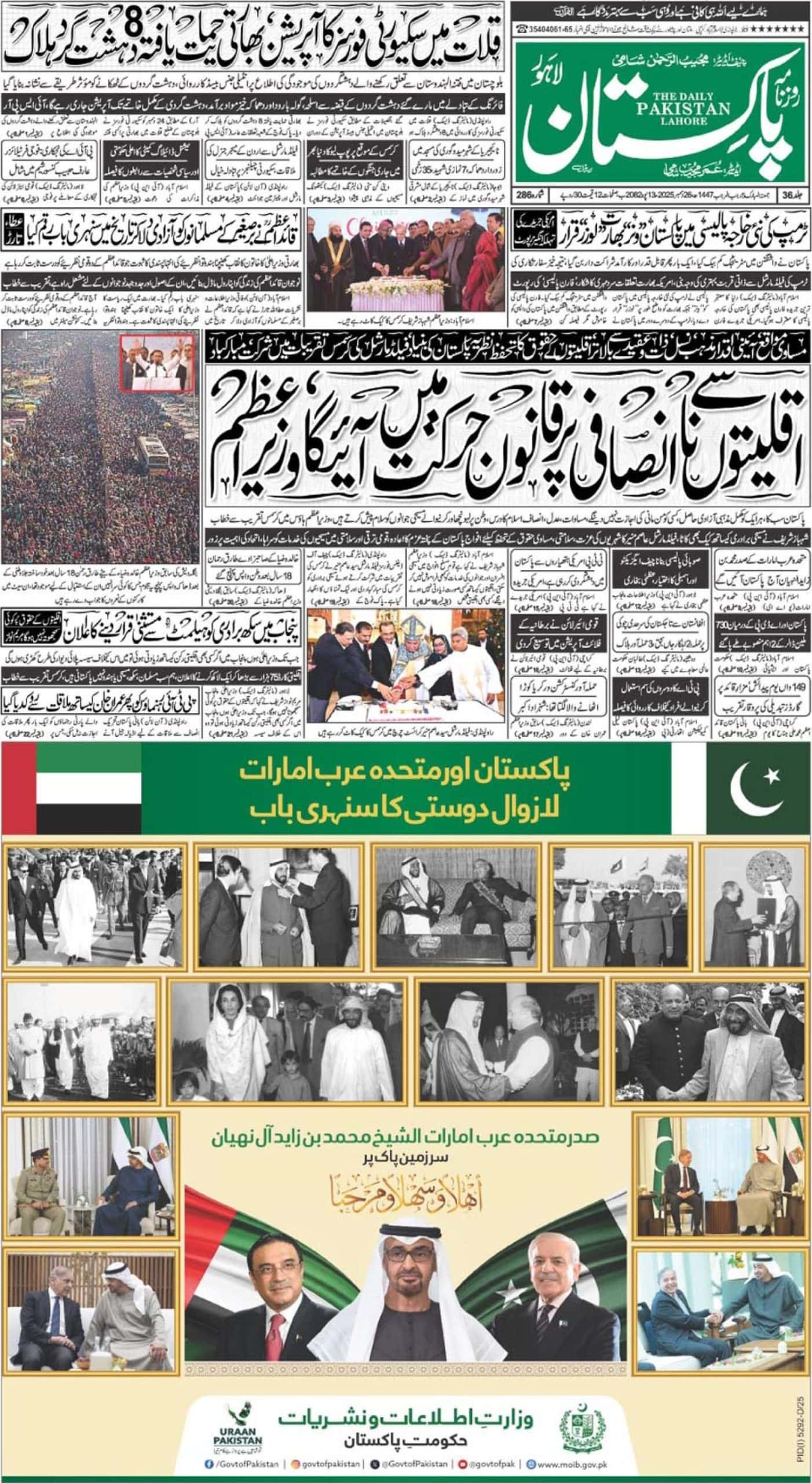LAHORE/KARACHI (Staff Report) – Polling is underway for the first phase of the much-delayed Local Bodies polls in 20 districts of Sindh and Punjab today.
Polling started at 7.30am and will continue till 5.30pm without any break. In some polling stations, polling began late as presiding officers were not aware of the notification that polling was to be started at 7.30am.
Over 25 million citizens will exercise their right to elect local govenment (LG) representatives in 12 districts of Punjab and eight of Sindh. Other districts in the two provinces will go to polls in two phases to follow.
The Central Control Room of ECP is monitoring the polling process, reported Radio Pakistan. The control room will continue functioning till compilation of the results.
Complaints about the polling can be registered on the control room’s telephone numbers: 051-9204342 and 9210816-9.
The last LG polls were held during the era of General (r) Pervez Musharraf in 2005.
Public holiday is being observed in the concerned districts of Punjab, following the directions of Election Commission of Pakistan (ECP).
The ECP has directed the voters to bring their original National Identity Card (CNIC); without original card no one will be able to cast his/her vote in LB polls. Also the time of polling has also extended from 9 hours to 10 hours.
A large number of independent candidates are also contesting in the local government elections.
The distribution of election material began on Friday morning.
For Lahore, 3,500 polling stations have been set up. The designated election officials on Friday handed over material for their respective polling stations, including ballot boxes, lists and ballots under the watchful eye of the Punjab police.
PUNJAB
In Faisalabad’s UC 54 Abdullahpur, a “fake policeman” attempting to influence the polling was arrested, Dawn News reported.
A fake voter was reportedly arrested in polling station no. 3 in Lahore’s UC 207.
olling halted for a brief time in Ward No 1 of Union Council 6 Gujrat following the death of presiding officer Muhammad Sharif – headmaster of a government school – due to cardiac arrest.
The polling remained suspended for 15 minutes before it resumed under the assistant presiding officer.
Meanwhile, it was reported that some PML-N workers uprooted PTI’s camps in Lahore’s Shahdara area.
ARMY CALLED IN
A total of 32,000 police personnel are on ground officiating the election while 4.44 million voters are supposed to cast their votes.
All voters of Punjab can check their vote and polling station details by sending CNIC number on 8300.
Army and Rangers personnel have been deployed but they will keep out of the polling stations, defying demands of main opposition parties.
Quick Response Force of the Army and Rangers are deployed at sensitive areas on polling day to prevent clashes between party supporters, Punjab Election Commissioner Masood Malik said.
Opposition parties, PTI, PPP, JI and PAT had demanded Punjab Election Commission to deploy Army and Rangers inside all the polling stations. They openly rejected the police saying that they have an inclination towards the ruling party.
According to security agency sources, the districts of Lahore, Gujrat, Faisalabad, Kasur and Bhakkar are marked as dangerous. In another threat assessment, security agencies marked Lahore, Faisalabad, Bhakkar, Lodhran, Vehari and Bahawalnagar as the possible targets of terrorist attacks.
SINDH
Polling was halted in polling station No.102 after two groups clashed in Jacobabad district. At least two people were injured in the clash.
Two groups clashed in wards 1 and 4 in Ghotki district’s tehsil Mirpur Mathelo.
The ruling PPP appears to be in a strong position in the eight districts of upper Sindh where polling is being held.
More than 4.6 million voters in the eight districts will vote for over 10,000 candidates vying for 2,333 constituencies falling in various tiers of municipal units.
The districts – Larkana, Shikarpur, Jacobabad, Kashmore, Kamber-Shahdadkot, Sukkur, Ghotki and Khairpur – fall within the territorial jurisdiction of Larkana and Sukkur divisions.
With the traditional election symbol of ‘arrow’, PPP candidates are facing rivals belonging to the PML-Functional, Muttahida Qaumi Movement, Jamiat Ulema-i-Islam-Fazl, Jamaat-i-Islami, Sindh United Party (SUP) and an alliance of several parties called the Larkana Awami Ittehad.
Sons of the Leader of the Opposition in the National Assembly Khurshid Ahmed Shah, Senator Islamuddin Shaikh, Sindh LG Minister Nasir Shah in Sukkur, and a daughter of Senior Sindh Minister Nisar Khuhro in Larkana have been elected unopposed.
According to the officials figures by provincial election commission, a total of 5,193 candidates are in the run for 950 constituencies in Sukkur division. Of them, 1,558 candidates will contest on 392 seats in Sukkur district, 2,664 candidates on 111 seats in Khairpur, and 971 candidates on 447 seats in Ghotki district.
In Larkana division, a total of 4,894 candidates will vie for 1,383 seats. They included 625 candidates for 101 seats in Jacobabad district, 609 candidates for 220 seats in Kashmore, 1,357 candidates for 466 seats in Kamber, 1,363 candidates for 314 seats in Larkana and 940 candidates for 282 seats in Shikarpur.
There are 54 town committees – 28 in Sukkur and 26 in Larkana – in the two divisions. Khairpur district has 20 town committees, the maximum number of town committees in any of the eight districts, while Jacobabad has the least number of town committees that is only three.
Also, there are 222 wards for the 28 town committees of Sukkur division and 163 wards for the 26 town committees of Larkana division.
Each of the eight districts has one district council with 187 union councils in Sukkur division and 239 in Larkana division. In all, there will be 4,031 polling stations including 678 of them being marked as sensitive from a security point of view.
Similarly, there are 26 union committees in the city of Sukkur and 20 union committees in urban Larkana.
Each of the two cities will have a municipal corporation having the elected chairmen of the union committees as its members.
The Sindh government has deployed over 31,000 police officials besides the 80 army troops and 2,219 Rangers personnel for election duty in the eight districts.
The army troops have been deployed at sensitive polling stations in Nara and Kingi areas of Khairpur district only.
FIRST PHASE
In this first phase, voters will elect chairmen and vice chairmen of the union councils, as well as the members of the district council.
More than 20 million registered voters of 12 districts will use their right to vote for the local bodies elections in Punjab.
The number of registered voters in Lahore are 4,305,880; Faisalabad 3,944,545; Gujrat 1,726,760; Kasur 1,614,042; Okara 1,507,246; Vehari 1,430,692; Bahawalnagar 1,387,865; Chakwal 1,009,947; Pakpattan 898,144; Lodhran 817,445; Bhakar 765,171; and Nankana Sahib 676,587.
Over 40 thousand candidates are in race for various offices of the Union Councils in the first phase of the local bodies’ polls across Punjab.
As many as 4,500 candidates will appear for chairman/vice chairman of District Councils whereas a total of 19,213 will contest for General Members of District Council’s Union Councils and 5531 candidates will be in the field for General Members of Municipal Committee’s Wards.
According to the Punjab Local Government (Amendment) Ordinance 2015, a union council shall have a directly elected chairman and a vice-chairman as joint candidates, and six councillors on general seats- one each from a ward. These members can contest polls either on party tickets or as independent candidates.
The electorates will only vote for the panel of a chairman and one general councillor from their respective ward. Once elected, the general members will elect two female members, one worker, a youth and a non-Muslim member for their wards.
Pakistan Muslim League-Nawaz (PML-N) is the only party which organised three local bodies’ elections in the past and not only accorded significance to local bodies but also ensured devolution of power to the grass roots level.
Unfortunately, Pakistan has not so far been able to evolve a viable and sustainable system of local governments because during each period of military rule, military dictators introduced a new system of local bodies to serve their own political agenda. Such a system naturally could not survive the transition from military to civilian rule.














